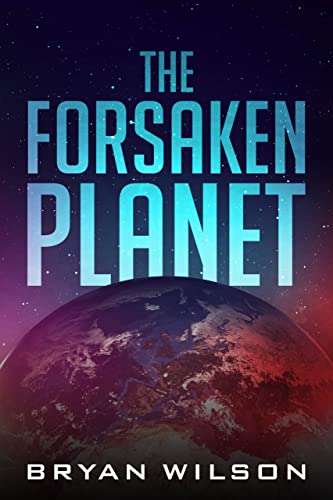Sights and Sounds of Writing
Capturing the Trifecta of Expression. A main course of Writing with vibes of Art and Music
Tuesday, January 2, 2024
Day at the Races
Wednesday, July 26, 2023
Personal Work - Someday
Someday on Sunday’s a mundane Monday.
Or someday, you could run away on a runway.
Or someday is just another cookie-cutter cupcake.
A treat just to eat just to appease your tongue’s taste.
Maybe, it is savory. Hearty and chunky
As a meal that you enjoy that can fulfill all your tum’s aches.
But it could never come like sunrays in a subway.
Time and time again we skip the grace of a someday.
Someday is a gift, we can only take it.
Someday is just as meaningful as you want to make it.
-
Wednesday, June 28, 2023
Glide
Wednesday, June 14, 2023
Book Review: The Forsaken Planet

One of the books I beta read for has been published on Amazon!
After an otherworldly entity arrives from the skies and commits death and destruction across the globe; follow young-adult Colton Samson as he enlists in an intergalactic army to wield the power of the stars and save his planet from impending war.
Genres: Science Fiction/Fantasy, Action/Adventure
Here's my review on Goodreads!
Thursday, June 8, 2023
Art of Noise - Moments in Love
Mystic, calming, intense, and ultimately satisfying: I describe this track as tribal jazz with a progressive trance song structure. It expertly builds upon its moods in gradual strokes but takes a couple of daring steps in the process. An absolute classic and must-recommend.
Wednesday, December 21, 2022
Christmas Forest
Wednesday, December 14, 2022
Characters: Your Hero
Let’s talk about characters! Most importantly, the hero/protagonist who’s going to carry your story.
The hero may be the cornerstone of inspiration for your novel, trilogy, series or whatever your endeavor is with writing. Sometimes that foundation may be built off of a plot device or a worldbuilding device, but if the hero does not shine in your reader’s hearts or memories as they are reading the book, prepare for the book to miss its target when it hits shelves and reviews.
Readers generally want a hero who is: smart, imperfect, and 3-dimensional.
Let’s address each point. I’m going to start with imperfect first.
- Imperfect. Readers want imperfection in a character so much that there’s a derogatory term applied to those who don’t follow this rule: Mary Sues. (Or Gary Stus). While success is often exciting from a real-world perspective, no one wants to read about a character who has it all in talent, intelligence, wealth, strength, approval/respect and integrity. Even combining two of these qualities can make for a risky move. No one wants to read about a rich valedictorian award-winning ballet dancer who was bullied in high school despite her good looks and heart of gold. Now, most people online talk about Mary Sues like the solution is to “add a flaw”. Okay. Would you really approve of the rich valedictorian cute ballet dancer, if she was insecure? Bad at sports? Unwise about decision-making? Naive about love? My guess is no, not really. The best way to write an imperfect character is not make a flaw on an otherwise perfect character, but just don’t make the character the cream-of-the-crop overachiever to begin with. Make them good at a couple things but not record-breakingly so. Give them strengths, but make it sound like they’re still “figuring-it-out” on a day-to-day basis especially if they’re 20s or younger. Make them an average that balances out, where the reader analyzes what their strengths and weaknesses are rather than saying it outright. If they have to overachieve (and in multiple fields), make their flaw deadly or crippling. Maybe they have a disease/mental illness, or are an alcoholic, or are secretly losing hope in themselves, or are a wild partier/spender that forfeits responsibility, or just really needs someone else’s help.
- Smart. Readers want a smart character, and I don’t necessarily mean book-smart. By that I mean, unless the character is to be regarded as stupid (like Patrick Star), then they want the character to be able to make common-sense decisions. They don’t want your character falling for the obvious horror-movie cliches when there was an easy way to call for help or get out of a situation. This is where you do the legwork as an author to stage your circumstances that eliminates the common-sense decision and forces your character to go into it head-on. It's safe to say that readers enjoy a clever character who can devise their way in and out of conflicts more than an intelligent character who knows his academics.
- 3-Dimensional. People like learning as much about your characters as they can. They don’t want to know a stereotype or archetype. You don’t want your character to be described with just a couple of adjectives. Readers want to know how deep their opinions & train of thoughts go, how flexible their skills or weaknesses are, how complicated their motivations are and how wide/narrow their capacities are for emotion or self-control. And rather than make a checklist of all the subjects your character can have an opinion on, I find that after you establish their identity and interests, one of the best forms of character development is just how they can react to diverse situations and interactions with the environment or other characters. Arguments, encouragements, acts of kindness, heart-to-hearts, problem-solving will say volumes about the character while advancing the plot. And using nuances to address these in slightly variable ways can break cliches and add bottomless depth to your character.


